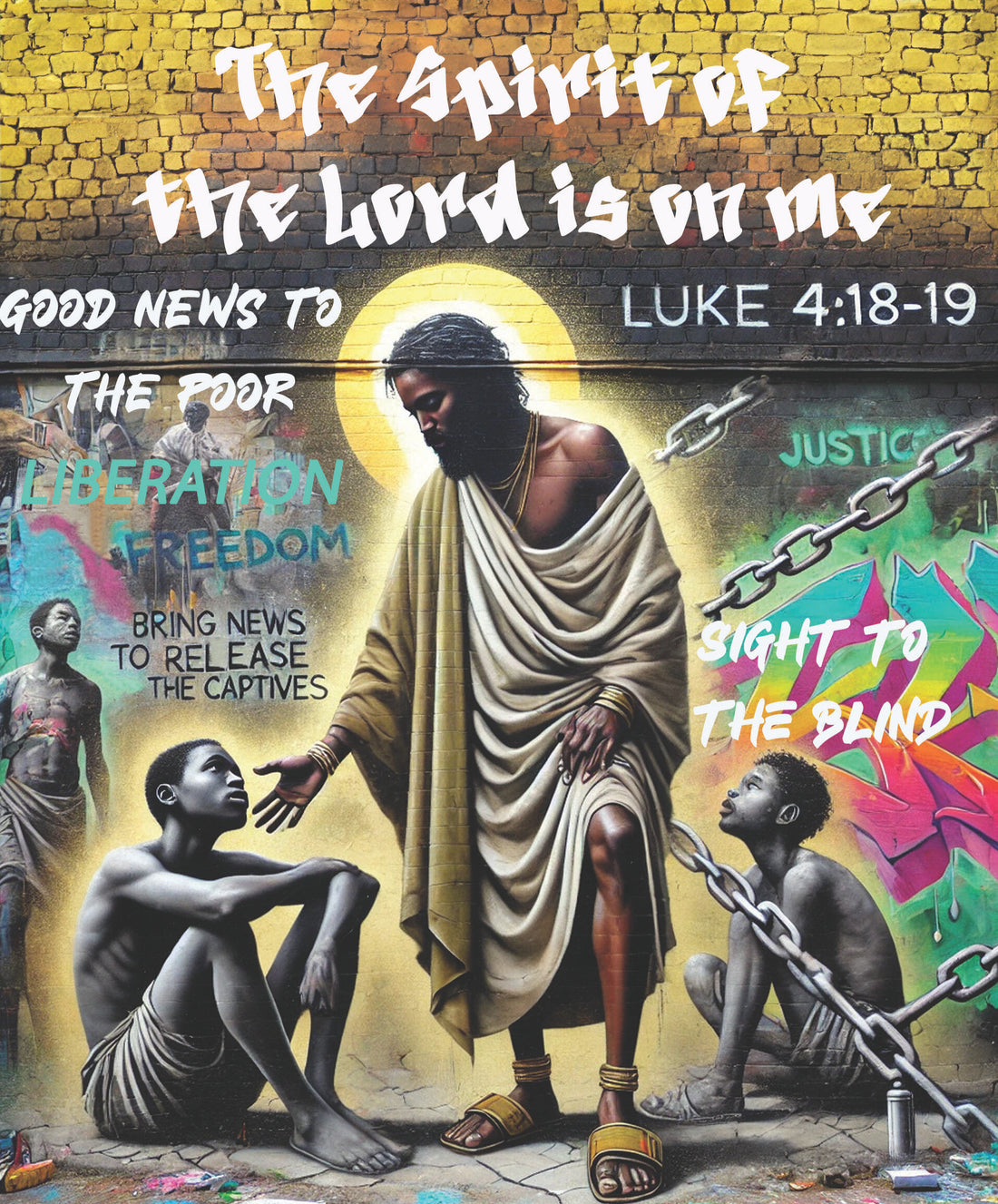
Jesus, the Revolutionary Street Disciple
Jay CuttinoShare
Jesus, the Revolutionary Street Disciple
In the bustling streets of ancient Palestine, a revolutionary figure emerged whose teachings transcended the traditional boundaries of religion and reached the hearts of those in need. Jesus of Nazareth, often portrayed as a gentle shepherd, also walked the streets as a Street Disciple, embodying compassion, justice, and love. His ministry wasn’t confined to the synagogues and the Second Temple but took place among the marginalized—on the dusty roads, in crowded marketplaces, and in the homes of outcasts.
Unlike the religious elite who distanced themselves from the poor, the sick, and the oppressed, Jesus embraced them. In Luke 4:18-19, He boldly declared His mission: to bring good news to the poor, heal the brokenhearted, free the captives, and liberate the oppressed. These were not just words—they were a manifesto for a grassroots movement that challenged the power structures of the time. Jesus, the Street Disciple, was leading a revolution.
This revolution echoes Howard Thurman’s profound insights in "Jesus and the Disinherited." Thurman reveals that Jesus' ministry was rooted in the lived experiences of the oppressed, the disinherited—those with their backs against the wall. Thurman argued that Jesus knew the burdens of the poor and the powerless because He was one of them. His message of radical love was an invitation for the disinherited to reclaim their dignity in the face of societal rejection. He did not offer passive spirituality, but an active resistance rooted in love, calling the oppressed to rise above fear, hate, and deception.
With every step He took through the streets, He gave hope to the hopeless and empowered the powerless. He fed the hungry with just a few loaves of bread, healed the sick with a touch, and restored dignity to those society had cast aside. His message was clear: God's kingdom was not for the privileged few, but for everyone, especially those pushed to the margins.
In Jerusalem, Jericho, and villages in between, Jesus met the people where they were—whether in the slums or among those burdened by heavy taxes and injustices. His presence was a direct threat to the religious and political authorities who feared the liberating power of His message. The oppressed saw in Him a champion who not only healed their physical ailments but also spoke to their deepest spiritual and societal longings for justice and freedom.
Thurman reminds us that Jesus’ non-violent resistance to oppressive forces is not weakness but the ultimate act of strength. His ministry redefined what it meant to be powerful—not through force, but through love and the dignity of standing up for those who have been broken by the world. His revolution of the heart offered the disinherited a new sense of identity, one grounded in God’s love and their intrinsic worth.
Jesus’ revolution was not one of swords but of radical love and compassion, dismantling the walls that divided rich and poor, sick and well, righteous and sinner. Jesus’ street ministry redefined what it meant to serve God—by serving those in need, standing against injustice, and calling all people to a higher standard of love and grace.
Today, as followers of Jesus, we are called not to be Nominal Christians, comfortable with religious doctrine or tradition, but to be faithful disciples who take up our crosses and mirror the ministry of Jesus. His challenge to us is clear: step outside the walls of the church and into the streets, where the needs are greatest. We are to fight for justice, love our neighbors sacrificially, and proclaim the good news to the oppressed.
Today, Jesus' ministry continues to inspire those who walk in His footsteps as street disciples, bringing the same message of liberation, justice, and hope to the most forgotten corners of society. The revolution He began on the streets of Palestine lives on in every act of compassion, every word of truth, and every heart set free. As Thurman reminds us, Jesus offers more than comfort—He offers a radical path toward freedom for the oppressed. The street disciple’s revolution is as alive today as it was 2,000 years ago.
His revolution lives on through those willing to carry the cross of service, truth, and love. It’s a call to action that goes beyond the comfort of Church pews, inviting each of us to walk in the footsteps of the ultimate Street Disciple. The time to act is now. The world is waiting for the Church to rise, not as a monument of religious doctrine, but as a movement of compassionate disciples, ready to transform lives, one street at a time.
